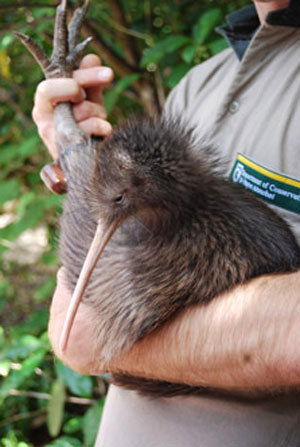Ranger
Tasks & duties

Rangers may do some or all of the following:
-
monitor, manage and protect native wildlife and plants
-
control and monitor pests and weeds
-
carry out wildlife/plant surveys
-
patrol marine reserves and rescue marine animals such as whales, dolphins and seals
-
make or maintain tracks, toilets, huts, signs, fences and other park and reserve facilities
-
construct islands in rivers, lakes and lagoons
-
maintain and run native plant nurseries
-
protect and restore historic sites
-
work to prevent vandalism and theft
-
assist with search and rescue, and rural fire-fighting operations
-
liaise with technical experts
-
advise, assist and give information to visitors of parks or reserves
-
develop and facilitate volunteer and education programmes
-
build and maintain links with the local community and iwi
Specialisations
Rangers can specialise in several areas, including:
-
building, carpentry, or plumbing (needed for building huts and other visitor facilities at national parks)
-
community relations and education
-
biodiversity, which involves looking after plants and animals
-
fire-fighting in parks and reserves
Skills & knowledge

Rangers need to have a variety of skills depending on their specialisation. Practical skills they may need include:
-
animal and bird-handling skills
-
track and facility management skills
-
fire-fighting skills
-
horticulture and pest control skills
-
farming and animal husbandry skills
Rangers also need to have:
-
knowledge of park or reserve rules
-
an understanding of legislation relevant to conservation work
-
knowledge of New Zealand natural history, plants, animals and cultural issues
-
knowledge of outdoor recreation
-
bush craft, survival and first aid skills
-
good organisational skills
-
communication skills for dealing with the public and managing volunteer workers
-
project management skills if working in a management position
Entry requirements
To become a ranger, you usually need a National Certificate in Conservation (Trainee Ranger). The is a one-year course.
A Bachelor of Science, or a conservation or management course, may be preferred by some employers.
Nelson Marlborough Institute of Technology website - trainee ranger certificate information
Southern Institute of Technology website - trainee ranger certificate information
Secondary education
A tertiary entrance qualification is recommended to enter tertiary training.
Useful subjects include Māori, English, biology, agricultural and horticultural science, and geography.
Training on the job
Rangers gain many of their skills on the job and/or by completing work-based training courses.
Rangers pick up new skills when changing employment locations, which gives them a chance to work in different habitats and with different types of wildlife.
Useful experience
Useful experience for rangers includes:
-
work in conservation through contract work or as a volunteer
-
outdoor experience, such as tramping, camping or farming
-
doing a First Aid Certificate or Risk Management Certificate course
A knowledge and understanding of Māori culture and protocol may also be useful.
Video
From just a job on you tube
Related courses
Land, Parks and Wildlife Management
Document Actions
